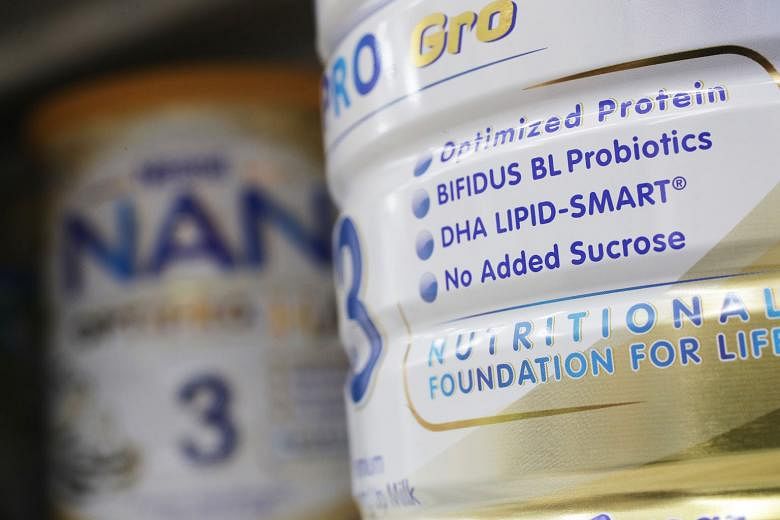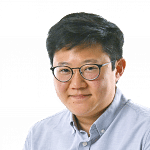Swiss food giant Nestle is fighting back against a report that accused it of manipulating consumers with misleading nutritional claims.
A spokesman for Nestle Singapore said yesterday, in response to Straits Times queries, that some of the report's findings are inaccurate, adding that it has invited the group behind the report to a dialogue.
But the spokesman did not specify what the inaccuracies are.
The world's biggest food company came under fire last week after a report by Dutch sustainability group Changing Markets Foundation and Hong Kong-based Globalisation Monitor accused it of putting marketing before science and contradicting its own nutritional advice.
The study compared the labels of more than 70 of Nestle's infant milk products in 40 countries or territories, and alleged inconsistencies in the composition and claims of some of its products.
In Brazil and Hong Kong, some Nestle infant milk products advise parents against feeding sucrose to infants, even though the very same ingredient was found in two of Nestle's infant milk products in South Africa, the report alleged.
"If an ingredient is not healthy, such as sucrose, then it should be in no products. Nestle's inconsistency on this point calls into serious question whether it is committed to science, as it professes to be," Changing Markets Foundation's campaigns director Nusa Urbancic was quoted as saying by the South China Morning Post (SCMP).
The study alleged another inconsistency - while some Nestle infant milk products sold in Hong Kong were marketed as healthier for not having added flavouring, its other infant milk items sold in the territory contained vanilla flavouring.
The report has sparked calls for the Hong Kong government to tighten checks on how baby milk is marketed, SCMP reported.
Singapore was not involved in the study, and the Agri-Food and Veterinary Authority (AVA) said it has "not detected non-compliance with Singapore's regulations thus far", based on checks on Nestle's formula milk products. The brand's infant milk products sold here include the NAN Optipro and Wyeth S-26 range.
The Nestle Singapore spokesman conceded that the report "raises some important points".
"We agree that formula manufacturers have a responsibility to provide products that are safe and as nutritionally complete as possible, and to ensure their composition is strictly informed by the best available science," said the spokesman.
According to market research provider Euromonitor International, Nestle has the largest global share of the fortified milk formula market, at 20.5 per cent last year.
In Singapore, Nestle is one of seven industry members of the Sale of Infant Foods Ethics Committee Singapore (Sifecs), which guides marketing practices and promotes breastfeeding. The Sifecs code is currently being revised, and no individual company is represented in the review sub-committee, the Health Promotion Board said.
The Singapore Infant Food Industry Self-Regulatory Committee, made up of the six major milk manufacturers here, said: "When marketing follow-up formula and growing-up milk, our industry agrees that it needs to be ethical, unambiguous and done transparently."
It said, in response to Straits Times queries, that products are tailored for each market according to factors such as research and development, as well as regulatory or business considerations.
When contacted, Changing Markets Foundation's Ms Urbancic told The Straits Times that it will respond to Nestle's letter inviting them to a dialogue in the coming days.
She said the study had focused on Nestle, as it is the largest producer of infant milk and prides itself on being "science-based".
She said: "At first review, this letter still fails to respond to the main question of our report: What is the science behind Nestle's infant formulas and where is the scientific rationale for such differences in products sold in different countries?"


